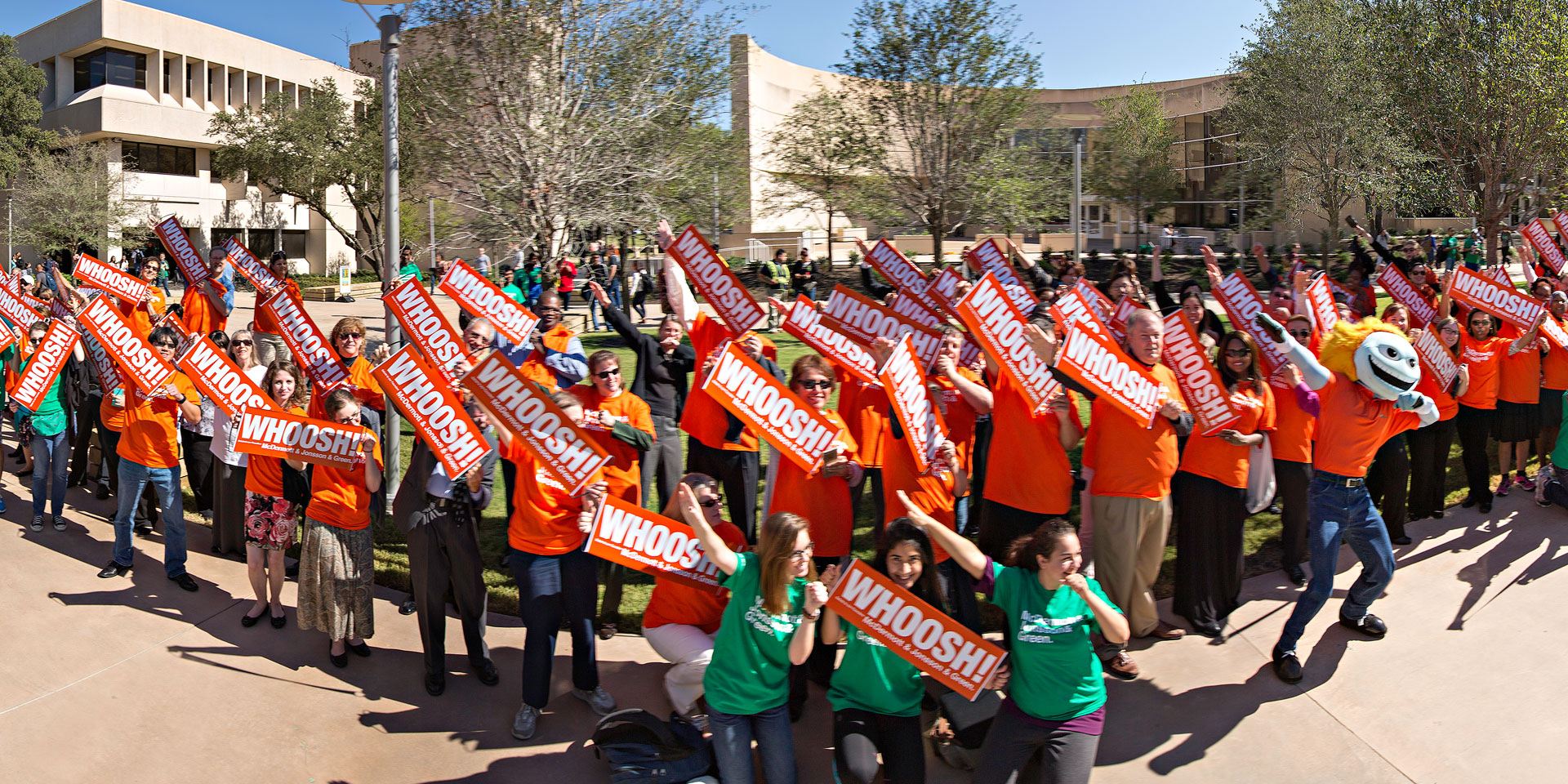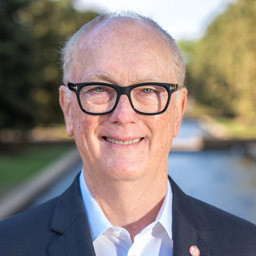
Nash Leader’s Program
The Nash Leader’s Program (NLP) is designed to help elevate the leadership potential of high-performing students by providing access to a robust set of leadership opportunities while enrolled in their degree program, offering a roadmap for those students to receive the Nash Leader Award upon graduation. The Nash Leader’s Program will be administered and managed by the Senior Director of Leadership Programs.

About Ron Nash
Ron Nash MS’79 is a veteran business executive in the technology industry currently serving as a senior advisor to the United States Department of Defense. He previously served as CEO and chairman of Pivot3, a Texas-based IT service management company, for over 15 years.
Read MoreDuring his more than 35 years in the industry, Nash has helped guide successful entrepreneurial ventures across the U.S. He has held corporate officer positions with over 10 companies, leading numerous successful IPOs and acquisitions. Nash graduated from the Georgia Institute of Technology with a bachelor’s degree in industrial engineering and received a master’s in management from The University of Texas at Dallas.
In addition to his corporate leadership, Nash is a dedicated supporter of higher education. He is a trustee of the Georgia Tech Foundation and previously held several advisory roles across the university.
At UT Dallas, Nash served as a leader for the Realize the Vision campaign, the University’s first comprehensive fundraising campaign, which raised more than $273 million that propelled UT Dallas to Tier One status as a major research institution. For his leadership to UT Dallas and the broader community, Nash received the UT Dallas Distinguished Alumni Award in 2011.
Nomination Process
Each spring, undergraduate and graduate program directors (MS and MBA) will provide nominations to the Nash Leader’s Program. Program leadership will interview the nominees, and a select committee will determine which of the nominees will be given membership in the Nash Leaders Association — a prestigious student leadership organization in the Jindal School of Management.
Nominee Eligibility
Nominees for the program will be second-semester sophomores (including transfer students) or first-semester juniors who have completed a minimum of 12 credit hours (as an undergraduate at UT Dallas) or graduate students who have completed nine semester hours.
Undergraduate nominees must, at a minimum, have a 3.40 GPA and be ranked in the top 20 percent of their class according to GPA. Graduate nominees must, at a minimum, have a 3.60 GPA and be ranked in the top 20 percent of their class according to GPA. All nominees must have demonstrated strong communication skills, high integrity, a volunteer mindset, a desire to be mentored by successful business leaders, service to others in an academic setting, and demonstrated grit and leadership potential.
All nominees must submit:
- A résumé outlining past leadership experience,
- A statement of interest indicating a commitment to achieving a senior leadership position in a student or community organization, and
- Proof of having successfully led a student or community organization to grow and improve.
Program Timeline
- Each spring, program directors would make one nomination from their degree program, choosing students who meet the above criteria.
- Nash Program Leadership will interview nominees, select the top candidates and award them $1,000 to be used toward their education.
Required Engagement Events for Nash Fellows
- Nash Leaders Welcome Event – Hosted by the school advisory board members or other prestigious groups. The students will be introduced as new members of the Nash Leader’s Program during this event.
- Nash Mentor Group -The donors and the school will create a team of mentors who will help support both the mentor roundtable event and shadow event below.
- Mentor Roundtable Event – Hosted by program leadership. During this event, the students can rotate from roundtable to roundtable to interact with successful Dallas-Fort Worth business leaders. After the roundtable event, students will be matched with business mentors.
- Shadow Day– Each Nash Leader will be paired with an alumnus who will host them at their place of business. Mentors and alums can be identified as Shadow Day hosts.
- Social Impact Project – FLA members will work to identify social impact opportunities in which the Jindal School could engage in that would improve students’ academic experience. For example, this could span across various engagements, from a food drive to a survey examining how the JSOM community could better serve military veterans. The students will present the outcomes of their Social Impact Project at the Semester Dinner Gala.
- Annual Dinner Gala – This event will be hosted by program leadership and the Jindal School deans. The event will include mentors who participated in the Mentor Roundtable or Shadow Day events.
Leadership is a Journey: Lessons Learned Through Industry Experience
Panel of leaders facilitated by Nash as panelists share trials and tribulations, experiences, success and what they wished they would have known before they became leaders.
Mentor while Mingling
Mentors will have a brief introduction to include tips such as how to prepare/give your elevator speech, six questions Fellows can ask Mentors, conversation starters, and dealing with fear during the mentoring process.
Management vs. Leadership: The Challenge of Leading a Team and Moving an Organization
Ron Nash will lead a conversation with Fellows about his experience transitioning from an IT expert to business leader and what he learned along the way. The goal of this session will be for Nash talk about leadership transformations in an informal setting with ample time for student questions.
Socially Responsible Leadership (Corporate Responsibility): How Industry Leaders Can Impact the World
Industry Leaders – Nash selected to talk about their efforts to impact their surrounding communities through acts of corporate responsibility, donorship, sustainable programs and other impactful philanthropy.
Communicating Success: Keys to Effective Organizational Communication
Industry leaders offer best practices, hard lessons learned, and effective ways to improve company-wide communication. Business leaders share at least one situation related to communication issues, the strategies they used to address the challenge, and the impact those strategies had for employees. Last, they will discuss why communication is tantamount for successful leadership practices.
Ready for the next step?
Contact Beth Nikopoulos with any questions that you may have beth.nikopoulos@utdallas.edu Senior Director of Student Development & Leadership Programs
Apply for Nash Leader’s Program